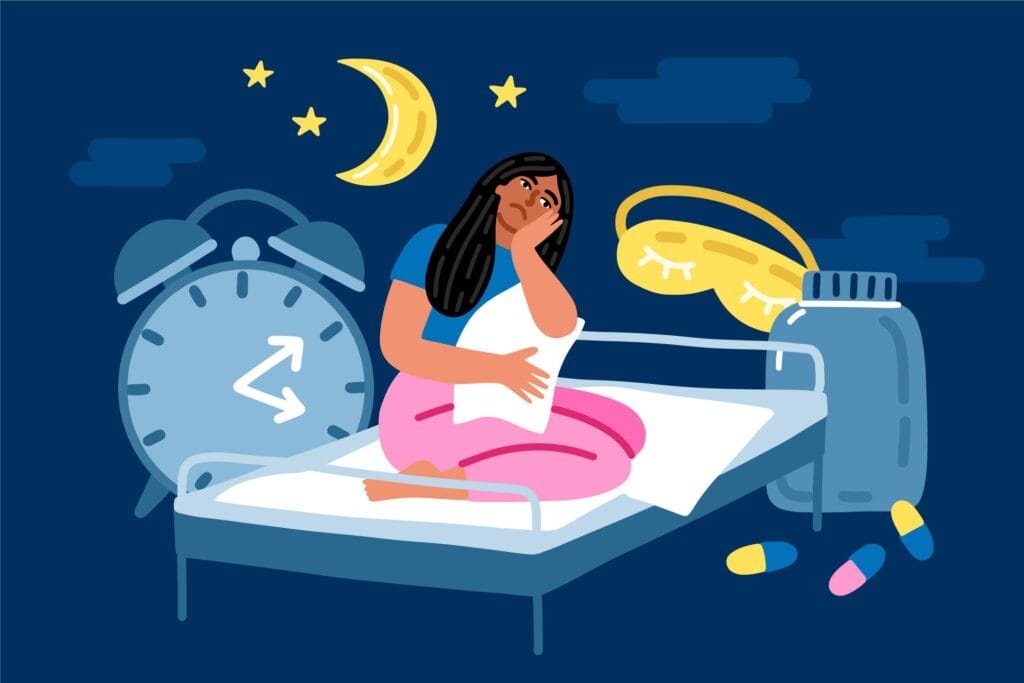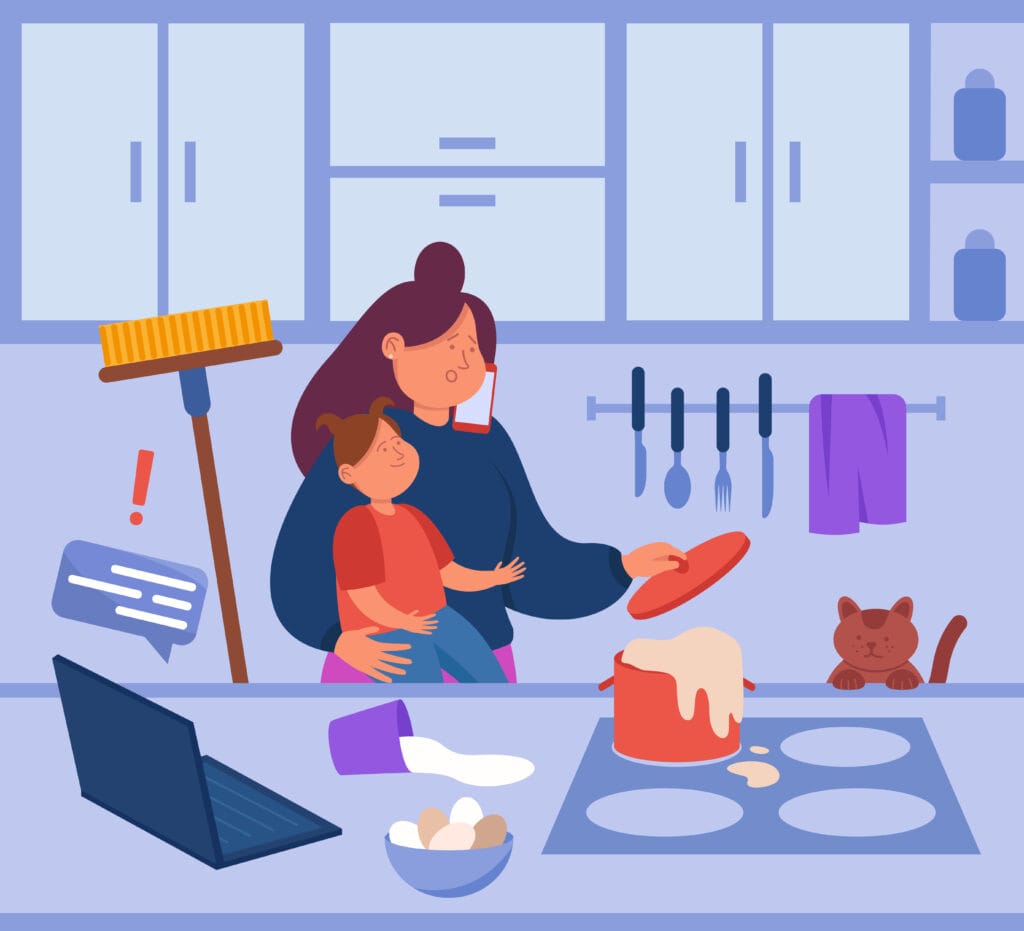Have you ever wondered why you sometimes feel more tired than the men in your life, even if you’ve had a full night’s sleep? It turns out, science has an answer. Generally women need more sleep than men—about 30-60 minutes more per night, according to research. But why is this the case? Let’s explore, through a holistic lens, why your body and mind might crave extra rest.
The Science Behind Women’s Sleep Needs
The difference in sleep needs stems from physiological, emotional, and even cognitive factors. Women’s bodies and brains are designed to handle unique demands, from hormonal fluctuations to multitasking. Here’s how:
- Hormonal Rhythms
Hormonal fluctuations during menstrual cycles, pregnancy, and menopause play a significant role in disrupting your sleep. For example, the surge of progesterone in the luteal phase of your menstrual cycle can make you feel sleepy, but its drop right before your period can lead to insomnia. Similarly, hot flashes and night sweats during menopause can interfere with deep sleep. Holistic Tip: Regulating your circadian rhythm through consistent sleep schedules and regular mindful practices like meditation inducing alpha brainwaves, breathing exercises, and learning about your needs, can buffer these hormonal changes. - Cognitive Load
Women’s brains are designed to handle complex cognitive tasks and they often juggle multiple roles, which means their mental processing requires more recovery time. A study from Duke University found that women’s brains show higher activity levels during the day, leading to a greater need for restorative sleep. Sleep isn’t just about resting your body—it’s when your brain cleanses itself of toxins and processes emotional and cognitive stress. Holistic Tip: Mindfulness meditation before bedtime can help unload your mental “to-do list,” setting the stage for deeper sleep. - Emotional Load
Studies suggest that women are more prone to conditions like anxiety and depression, which are strongly linked to sleep disturbances. The added emotional labor most women shoulder, whether in caregiving roles or multitasking, can heighten stress and fatigue. Holistic Tip: Take time to reflect and address unmet emotional needs. Foster deep, meaningful connections with others, as these relationships provide a safe space to share and release emotional stress, helping you feel lighter and more balanced. - Vulnerability to Sleep Disorders
Women are more prone to insomnia, restless leg syndrome, and even sleep apnea (especially after menopause). These disorders often go undiagnosed because their symptoms can differ from men’s. Sleep apnea, for instance, might show up as fatigue and mood swings in women rather than snoring. Holistic Tip: If you frequently feel tired despite getting 7-8 hours of sleep, it’s worth discussing sleep disorders with a healthcare professional.

What Most Articles Don’t Tell You: The Role of Emotional Energy
Beyond the physical and hormonal reasons, there’s a deeper, more personal layer—emotional energy. Women often carry a heightened sense of emotional attunement, which can amplify empathy but also lead to greater emotional fatigue. During REM sleep, your brain processes emotional experiences, offering you the space to heal, organize, and make sense of what you feel.
When this vital sleep phase is cut short, you might wake up feeling emotionally drained, as if the weight of unresolved emotions still lingers. REM sleep is also the time when your brain connects dots, forming creative solutions and deeper insights. This unique blend of emotional and creative intuition means women may need more REM sleep to stay balanced, replenished, and inspired.
Societal Expectations and Their Impact
Beyond biology, societal expectations play a huge role in shaping women’s sleep needs. The constant balancing act of careers, caregiving, and managing a household often leaves women feeling like they must always be available, always doing, always “on.” This mental and emotional load can be exhausting, making it harder to truly relax at the end of the day.

What makes it even harder? Many women feel guilty for needing more sleep. They may worry about being seen as less productive or feel like they’re letting someone down by prioritizing rest. This guilt can lead to pushing through exhaustion, ignoring the body’s signals for rest, and falling into a pattern of sleep deprivation that only deepens their fatigue. The irony is, the very people women care for and support so tirelessly benefit most when women are well-rested and recharged.
How to Maximize Your Sleep Quality
So, how can you ensure you’re getting not just more sleep but better sleep? Here are a few tips tailored for your unique needs:
- Sync with Your Cycle
Track your menstrual cycle to identify patterns in your sleep. Apps like Clue or Flo can help you predict phases when sleep disruptions are likely. During these times, prioritize relaxation and avoid overloading your schedule. - Optimize Your Sleep Environment:
Keep your bedroom cool and dark. Use breathable sheets to combat hormonal hot flashes or night sweats. - Harness the Power of Nutrition:
Foods rich in magnesium, like spinach and, can promote relaxation. Herbal teas like chamomile or valerian root can be calming. - Magnesium-Rich Diet
Magnesium helps regulate neurotransmitters that support sleep. Include magnesium-rich foods like almonds, spinach, and dark chocolate in your diet, or consider supplements after consulting a healthcare provider. - Challenge Societal Expectations
Learn to say no to unnecessary commitments. Delegate tasks and create boundaries around your time. Recognize that rest is not a luxury but a necessity for your well-being. - Create a Sleep Sanctuary
Keep your bedroom cool, dark, and quiet. Consider using blackout curtains and a white noise machine to block distractions. - Embrace the Wind-Down Ritual:
Dedicate the last hour of your day to activities that calm your nervous system. Journaling, gentle stretches, or even gratitude practice can prepare your mind for rest. - Track Your Sleep Patterns:
If you suspect hormonal disruptions or sleep disorders, tracking your sleep can provide valuable insights. Apps or wearable devices can help identify patterns and triggers.
Sleep as Self-Care
Sleep is not just about shutting your eyes for eight hours. It’s about nourishing your mind, body, and soul.
As a woman, your sleep needs are a reflection of the intricate balance between your physical, emotional, and mental energy. Recognizing that you might need more sleep than others isn’t a sign of weakness—it’s a testament to the incredible work your body and mind do every day.
The next time you feel guilty about needing extra rest, remember: Sleep isn’t just a break. It’s the foundation of your health, creativity, and emotional resilience. So, Start listening to your body and give it the rest it deserves. Your future self will thank you.
Stay mindful, stay rested.








